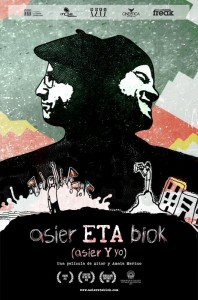En Granada di una clase pero también grabamos una sesión sobre profesionalización de la filosofía y una breve conversación con Elvira Pertega, en la que tal vez yo hablé de más:
Creo que merece la pena continuar con este tema, porque aunque la pertenencia a un comité de ética no es una profesión en sentido estricto (la filosofía sí), en torno a los comités hay oportunidades laborales para filósofas/os. Estas nuevas salidas amplían nuestras vías de profesionalización, tradicionalmente orientadas hacia la docencia universitaria y en secundaria, pero no están institucionalizadas como ellas, no son inmediatas, sino que hay que crearlas. Para ello, la mejor vía que conozco es precisamente la investigación. Al investigar (a nivel pre y post doctoral) podemos descubrir oportunidades de crear servicios especializados en los que trabajar como profesionales de la filosofía.




